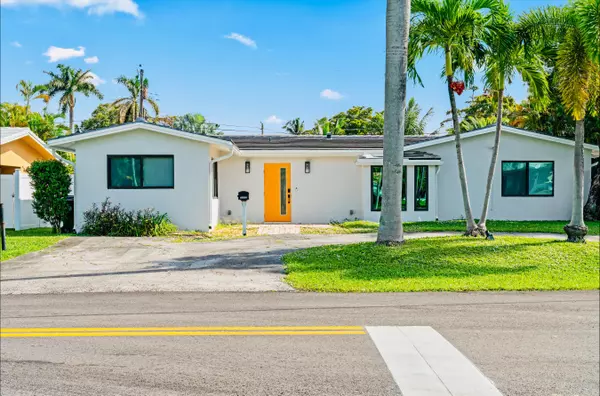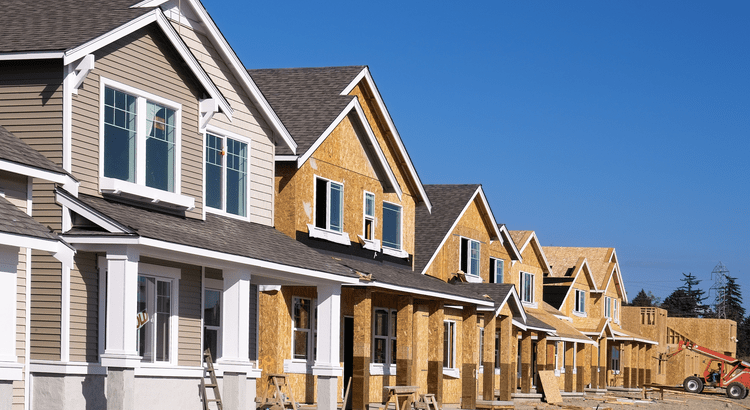A Better Real Estate Experience
SCOTT MORREAU PA
Want to sell your home without the hassle? Get a cash offer.
Lifestyle Listings
E X P L O R E
Luxury Properties
S E A R C H L I S T I N G S
E X P L O R E
Waterfront Properties
S E A R C H L I S T I N G S
E X P L O R E
Condos & Townhouses
S E A R C H L I S T
E X P L O R E
New Construction
S E A C H L I S T I N G S
E X P L O R E
Golf Course Properties
S E A C H L I S T I N G S
E X P L O R E
All Properties
S E A C H L I S T I N G S
New On The Market
- 3D
 Open Sat 12PM-2PM
Open Sat 12PM-2PM$899,999
4 Beds3 Baths2,100 SqFt3000 NE 2nd TER, Wilton Manors, FL 33334
Single Family Home
Listed by LoKation
- 1/74 74
 New
New$729,900
2 Beds2 Baths1,200 SqFt305 N Pompano Beach BLVD 512, Pompano Beach, FL 33062
Condo
Listed by Century 21 Tenace Realty
- 1/99 99
 New
New$10,995,000
7 Beds7.5 Baths6,473 SqFt31 Pelican Dr, Fort Lauderdale, FL 33301
Single Family Home
Listed by Douglas Elliman

- 1/36 36
 New
New$1,250,000
2 Beds2 Baths1,285 SqFt401 N Birch Rd #703, Fort Lauderdale, FL 33304
Condo
Listed by Douglas Elliman

 Coming Soon
Coming Soon$3,900,000
3 Beds3 Baths2,740 SqFt79 Fiesta Way, Fort Lauderdale, FL 33301
Single Family Home
Listed by Better Homes & Gdns RE Fla 1st

Client Love

Scott is an excellent agent who goes above and beyond. I recently purchased a home that had unforeseen issues and Scott was very helpful in helping find solutions, including providing referrals. He is very knowledgeable and well connected so ca assist with pretty much anything - and will never make you feel like you are a bother. I highly recommend him.
Miriam Montesinos
In The News

What To Look For From This Week’s Fed Meeting
You may be hearing a lot of talk about the Federal Reserve (the Fed) and how their actions will impact the housing market right now. Here’s why. The Fed meets again this week to decide the next step with the Federal Funds Rate. That's how much it costs banks to borrow from each other. Now, that’s not the same thing as setting mortgage rates, but mortgage rates can be influenced through this process. And if you’re thinking about buying or selling a home, you may be wondering about the downstream impact and when mortgage rates will come down. Here’s a quick rundown of what you need to know to help you anticipate what’ll happen next. The Fed’s decisions are guided by these three key economic indicators: The Direction of Inflation How Many Jobs the Economy Is Adding The Unemployment Rate Let’s take a look at each one. 1. The Direction of Inflation You’ve likely noticed prices for everyday goods and services seem to be higher each time you make a purchase at the store. That’s because of inflation – and the Fed wants to see that number come back down so it’s closer to their 2% target. Right now, it’s still higher than that. But despite a little volatility, inflation has generally been moving in the right direction. It gradually came down over the past two years, and is holding fairly steady right now (see graph below): The path of inflation – though still not at their target rate – is a big part of the reason why the Fed will likely lower the Fed Funds Rate again this week to make borrowing less expensive, while still ensuring the economy continues to grow. 2. How Many Jobs the Economy Is Adding The Fed is also keeping an eye on how many new jobs are added to the economy each month. They want job growth to slow down a bit before they cut the Federal Funds Rate further. When fewer jobs are created, it shows the economy is still doing well, but gradually cooling off—exactly what they’re aiming for. And that’s what’s happening right now. Reuters says: “Any doubts the Federal Reserve will go ahead with an interest-rate cut . . . fell away on Friday after a government report showed U.S. employers added fewer workers in October than in any month since December 2020.” Employers are still hiring, but just not as many positions right now. This shows the job market is starting to slow down after running hot for a while, which is what the Fed wants to see. 3. The Unemployment Rate The unemployment rate shows the percentage of people who want jobs but can’t find them. A low unemployment rate means most people are working, which is great. However, it can push inflation higher because more people working means more spending—and that makes prices go up. Many economists consider any unemployment rate below 5% to be as close to full employment as is realistically possible. In the most recent report, unemployment is sitting at 4.1% (see graph below): Unemployment this low shows the labor market is still strong even as fewer jobs were added to the economy. That’s the balance the Fed is looking for. What Does This Mean Going Forward? Overall, the economy is headed in the direction the Fed wants to see – and that’s why experts say they will likely cut the Federal Funds Rate by a quarter of a percentage point this week, according to the CME FedWatch Tool. If that expectation ends up being correct, that could pave the way for mortgage rates to come down too. But that doesn’t mean they’ll fall immediately. It will take some time. Remember, the Fed doesn’t determine mortgage rates. Forecasts show mortgage rates will ease more gradually over the course of the next year as long as these economic indicators continue to move in the right direction and the Fed can continue their Federal Funds rate cuts through 2025. But a change in any one of the factors mentioned here could cause a shift in the market and in the Fed’s actions in the days and months ahead. So, brace for some volatility, and for mortgage rates to respond along the way. As Ralph McLaughlin, Senior Economist at Realtor.com, notes: "The trajectory of rates over the coming months will be largely dependent on three key factors: (1) the performance of the labor market, (2) the outcome of the presidential election, and (3) any possible reemergence of inflationary pressure. While volatility has been the theme of mortgage rates over the past several months, we expect stability to reemerge towards the end of November and into early December." Bottom Line While the Fed’s actions play a part, economic data and market conditions are what really drive mortgage rates. As we move through the rest of 2024 and 2025, expect rates to stabilize or decline gradually, offering more certainty in what has been a volatile market.
Read more

Avoid These Top Homebuyer Mistakes in Today’s Market
No one likes making mistakes, especially when they happen in what’s likely the biggest transaction of your life – buying a home. That’s why partnering with a trusted agent is so important. Here’s a sneak peek at the most common missteps buyers are making in today’s market and how a great agent will help you steer clear of each one. Trying To Time the Market Many buyers are trying to time the market by waiting for home prices or mortgage rates to drop. This can be a really risky strategy because there’s so much at play that can have an impact on those things. As Elijah de la Campa, Senior Economist at Redfin, says: “My advice for buyers is don’t try to time the market. There are a lot of swing factors, like the upcoming jobs report and the presidential election, that could cause the housing market to take unexpected twists and turns. If you find a house you love and can afford to buy it, now’s not a bad time.” Buying More House Than You Can Afford If you’re tempted to stretch your budget a bit further than you should, you’re not alone. A number of buyers are making this mistake right now. But the truth is, it’s actually really important to avoid overextending your budget, especially when other housing expenses like home insurance and taxes are on the rise. You want to talk to the pros to make sure you understand what’ll really work for you. Bankrate offers this advice: “Focus on what monthly payment you can afford rather than fixating on the maximum loan amount you qualify for. Just because you can qualify for a $300,000 loan doesn’t mean you can comfortably handle the monthly payments that come with it along with your other financial obligations.” Missing Out on Assistance Programs That Can Help Saving up for the upfront costs of homeownership takes some careful planning. You’ve got to think about your closing costs, down payment, and more. And if you don’t work with a team of experienced professionals, you could miss out on programs out there that can make a big difference for you. This is happening more than you realize. According to Realtor.com, almost 80% of first-time buyers qualify for down payment assistance – but only 13% actually take advantage of those programs. So, talk to a lender about your options. Whether you’re buying your first house or your fifth, there may be a program that can help. Not Leaning on the Expertise of a Pro This last one may be the most important of all. The very best way to avoid making a mistake that’s going to cost you is to lean on a pro. With the right team of experts, you can easily dodge these missteps. Bottom Line The good news is you don’t have to deal with any of these headaches. Let’s connect so you have a pro on your side who can help you avoid these costly mistakes.
Read more

The Latest Builder Trend: Smaller, Less Expensive Homes
Even though affordability is improving, buying a home can still feel tough right now. But here’s some good news: builders are focusing their efforts on building smaller homes, and they’re offering key incentives to buyers. And both of these things can be a big help if you're worried about finding a home that’s right for your budget. Builders Are Building Smaller Homes During the pandemic, homebuyers were looking for larger homes—and many could afford them. Builders responded to that demand and created bigger spaces to help people with things like working from home, setting up home gyms, and having extra rooms for virtual school. Now, with affordability as tight as it is, builders are turning their focus to smaller single-family homes. Data from the Census shows how significant this trend toward smaller new homes has been over the last couple of years (see graph below): But why would builders want to build smaller homes right now? At the end of the day, builders are going to focus on building homes that meet current market demand – because they want to build what they know will sell. And the number one thing homebuyers are looking for right now is better affordability. Since smaller homes typically come with smaller price tags, both buyers and builders have shifted their focus to homes with less square footage. The National Association of Home Builders (NAHB) reports: “. . . home buyers are looking for homes around 2,070 square feet, compared to 2,260 20 years ago.” And according to Orphe Divounguy, Senior Economist at Zillow: “Not only are cash-strapped buyers continually seeking out lower-cost options, but developers are changing what type and size of home they're producing to try and meet that need." How a Newly Built Home Can Help You Achieve Your Homebuying Goals So, if you’re having a hard time finding something in your budget, it may be time to look at brand-new homes that have a smaller footprint. When you do, you may get a few other fringe benefits that can help on the affordability front – like price reductions or mortgage rate buy-downs. According to the most recent data from Zonda, more than half of builders are offering incentives, some of which are mortgage rate buydowns. And those perks could help lower your future monthly housing payment too. John Burns, CEO of John Burns Research & Consulting, shares: “The monthly payment matters more than anything else and builders have responded with smaller, more efficient homes.” Not to mention, with new home construction, you’ll also get brand new everything, have fewer maintenance needs, and get some of the latest features available. That’s worth looking into, right? Bottom Line With builders focusing on smaller homes, you may have more budget-friendly options when it matters most. If you're thinking about buying a home soon, let’s connect and see what’s available where you want to live.
Read more

The Real Story Behind What’s Happening with Home Prices
If you’re wondering what’s going on with home prices lately, you’re definitely not the only one. With so much information out there, it can be hard to figure out your next move. As a buyer, you might be worried about paying more than you should. And if you're thinking of selling, you might be concerned about not getting the price you're aiming for. So, here's a quick breakdown to help clear things up and show you what’s really happening with prices—whether you're thinking about buying or selling. Home Price Growth Is Slowing, but Prices Aren’t Falling Nationally Throughout the country, home price appreciation is moderating. What that means is, prices are still going up, but they're not rising as quickly as they were in recent years. The graph below uses data from Case-Shiller to make the shift from 2023 to 2024 clear: But rest assured, this doesn't mean home prices are falling. In fact, all the bars in this graph show price growth. So, while you might hear talk of prices cooling, what that really means is they're not climbing as fast as they were when they skyrocketed just a few years ago. What’s Next for Home Prices? It’s All About Supply and Demand You might be curious where prices will go from here. The answer depends on supply and demand, and it’s going to vary by local market. Nationally, the number of homes for sale is going up, but there still aren’t enough of them to meet today’s buyer demand. That’s keeping upward pressure on prices – even though recent inventory growth has caused that home price appreciation to slow. Danielle Hale, Chief Economist at Realtor.com, said: “. . . today’s low but quickly improving for-sale inventory has ushered in more market balance than would otherwise be expected . . . This should help home prices maintain a slower pace of growth.” And here’s one other thing you may not have considered that could play a role in where prices go from here. Since experts say mortgage rates should continue to decline, it’s likely more buyers will re-enter the market in the months ahead. If demand picks back up, that could make prices climb a bit further. Why You Should Work with a Local Real Estate Agent While national trends give a big-picture view, real estate is always local – especially when it comes to prices. What's happening in your neighborhood might be different from the national average based on what supply and demand look like in your market. That’s why it's crucial to get local insights from a knowledgeable real estate agent. As your go-to source for everything related to home prices, a local agent can provide the most current data and trends specific to your area. So, if you’re planning to sell, they can help you price your house accurately. And when you’re ready to buy, they can find the right home that fits your budget and your needs. Bottom Line Home prices are still rising, just not as quickly as before. Whether you’re thinking about buying, selling, or just curious about what your house is worth, let’s connect so you have the personalized guidance you need.
Read more

2025 Housing Market Forecasts: What To Expect
Looking ahead to 2025, it's important to know what experts are projecting for the housing market. And whether you're thinking of buying or selling a home next year, having a clear picture of what they’re calling for can help you make the best possible decision for your homeownership plans. Here’s an early look at the most recent projections on mortgage rates, home sales, and prices for 2025. Mortgage Rates Are Projected To Come Down Slightly Mortgage rates play a significant role in the housing market. The forecasts for 2025 from Fannie Mae, the Mortgage Bankers Association (MBA), the National Association of Realtors (NAR), and Wells Fargo show an expected gradual decline in mortgage rates over the course of the next year (see chart below): Mortgage rates are projected to come down because continued easing of inflation and a slight rise in unemployment rates are key signs of a strong but slowing economy. And many experts believe these signs will encourage the Federal Reserve to lower the Federal Funds Rate, which tends to lead to lower mortgage rates. As Morgan Stanley says: “With the U.S. Federal Reserve widely expected to begin cutting its benchmark interest rate in 2024, mortgage rates could drop as well—at least slightly.” Expect More Homes To Sell The market will see an increase in both the supply of available homes on the market, as well as a rise in demand, as more buyers and sellers who have been sitting on the sidelines because of higher rates choose to make a move. That’s one big reason why experts are projecting an increase in home sales next year. According to Fannie Mae, MBA, and NAR, total home sales are forecast to climb slightly, with an average of about 5.4 million homes expected to sell in 2025 (see graph below): That would represent a modest uptick from the lower sales numbers in 2023 and 2024. For reference, about 4.8 million total homes were sold in 2023, and expectations are for around 4.5 million homes to sell this year. While slightly lower mortgage rates are not expected to bring a flood of buyers and sellers back to the market, they certainly will get more people moving. That means more homes available for sale – and competition among buyers who want to purchase them. Home Prices Will Go Up Moderately More buyers ready to jump into the market will put continued upward pressure on prices. Take a look at the latest price forecasts from 10 of the most trusted sources in real estate (see graph below): On average, experts forecast home prices will rise nationally by about 2.6% next year. But as you can see, there’s a range of opinions on how much prices will climb. Experts agree, however, that home prices will continue to increase moderately next year at a slower, more normal rate. But keep in mind, prices will always vary by local market. Bottom Line Understanding 2025 housing market forecasts can help you plan your next move. Whether you're buying or selling, staying informed about these trends will ensure you make the best decision possible. Let’s connect to discuss how these forecasts could impact your plans.
Read more

The Number One Mistake Sellers Are Making: Overpricing Their House
In today's housing market, many sellers are making a critical mistake: overpricing their houses. This common error can lead to a home sitting on the market for a long time without any offers. And when that happens, the homeowner may have to drop their asking price to try to re-ignite buyer interest. Data from Realtor.com shows the number of homeowners realizing this mistake and doing a price reduction is climbing (see graph below): If you’re thinking about making a move yourself, here’s what you need to know. The best way to avoid making a costly mistake is to work with a trusted real estate agent to find the right price. Here’s a look at what’s at stake if you don’t. Not Paying Attention To Current Market Conditions Understanding current market conditions is key to accurate pricing. You don’t want to set your asking price based on what happened during the pandemic. The market has moderated a lot since then, so it’s far better to align your price with today’s reality. Real estate agents stay updated on market trends and how they impact the pricing strategy for your house. Pricing It Based on What You Want To Make (Not What It’s Worth) Another misstep is pricing it based on what you want to make on the sale, and not necessarily current market value. You may see other homes in your neighborhood selling for top dollar and assume yours can do the same. But you may not be considering differences in size, condition, and features. For example, maybe that other house is waterfront or has a finished basement. To sum it up, Bankrate explains: “How do you find that sweet spot of pricing for profit but not overpricing? The expertise of your agent can be truly valuable here. A knowledgeable agent will understand fair market value in your area, how much your house is worth and how much you might reasonably expect to get for it in the current market.” An agent will do a comparative market analysis (CMA) to make sure your house is compared with truly similar properties to get an accurate look at how it should be priced. Pricing High to Leave Room for Negotiation Another common, yet misguided strategy is to price your house high on purpose, so you have more room to negotiate down during the sale. But this can backfire. A price that seems too high often deters potential buyers from even considering the home. So rather than leaving room for negotiation, what you’ll actually be doing is turning buyers away. U.S. News Real Estate explains: “You want to sell your house for top dollar, but be realistic about the value of the property and how buyers will see it. If you've overpriced your home, chances are you'll eventually need to lower the number, but the peak period of activity that a new listing experiences is already gone.” An agent can help you set a fair price that attracts buyers and encourages more competitive offers. Bottom Line Overpricing your home can have serious consequences. A knowledgeable real estate agent brings an objective perspective, in-depth market knowledge, and a strategic approach to pricing. Let’s connect so you can avoid making a pricing mistake that’ll cost you.
Read more
LETS TALK FORT LAUDERDALE REAL ESTATE!

Broker Associate | License ID: 3188832
2655 E. Oakland Park Blvd # 1, Lauderdale, Florida, 33306, United States

